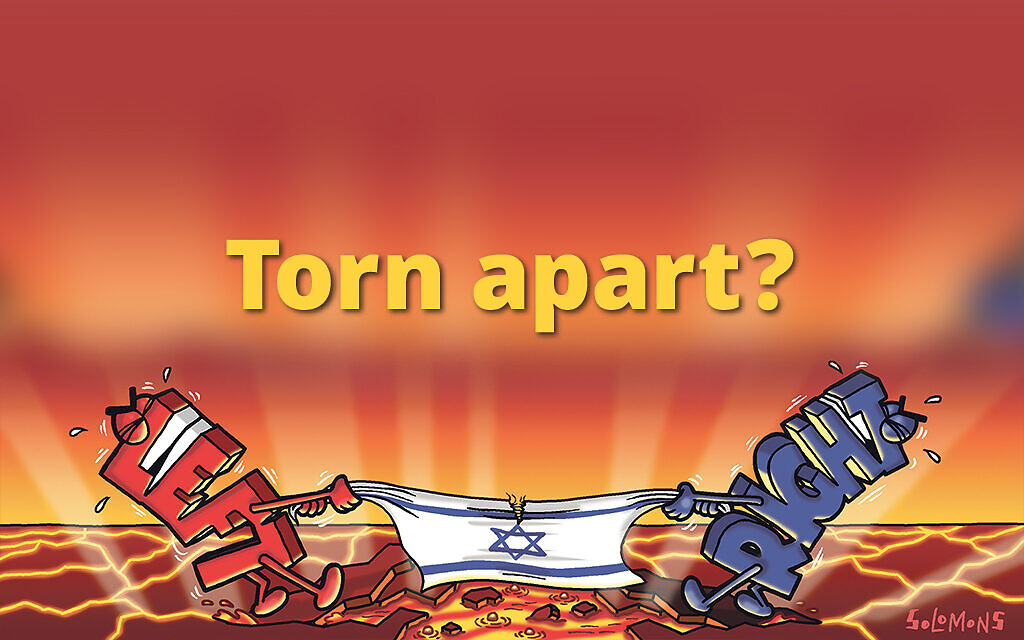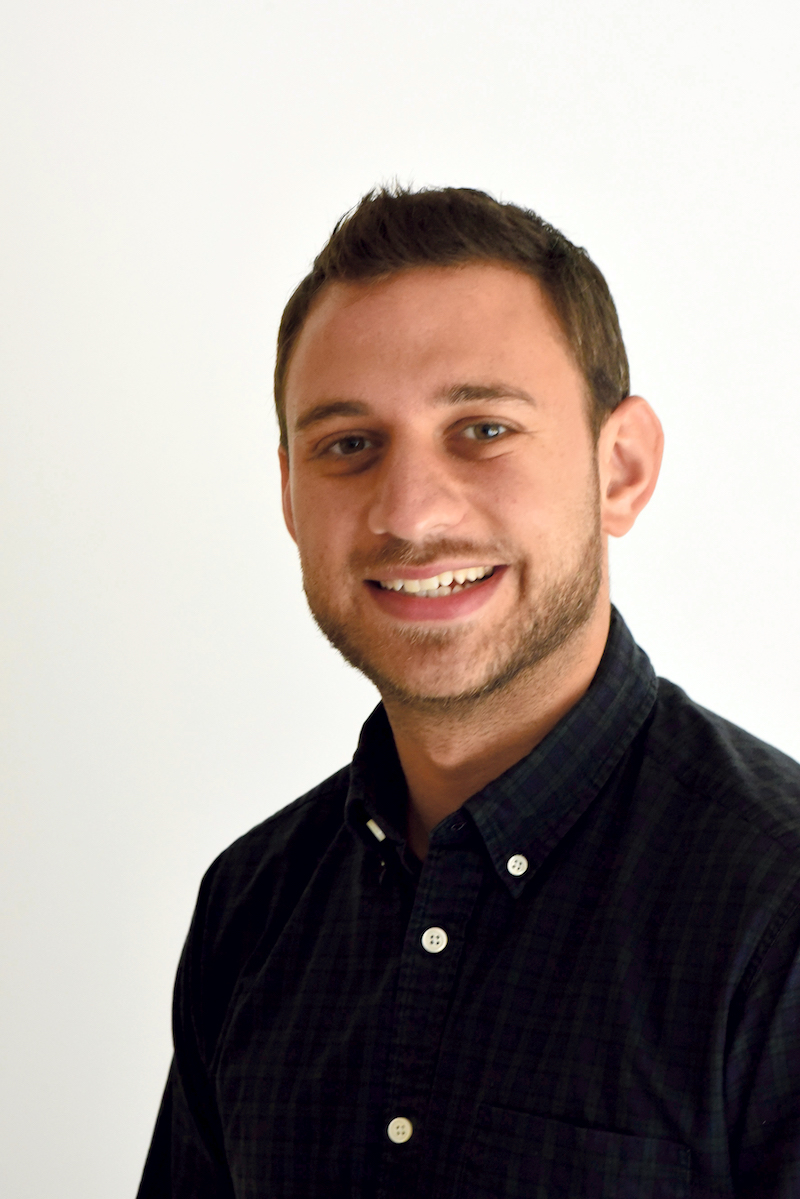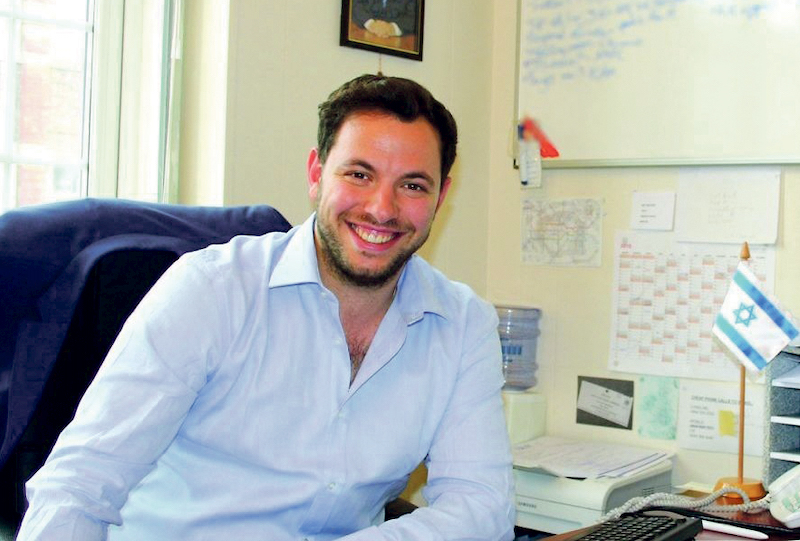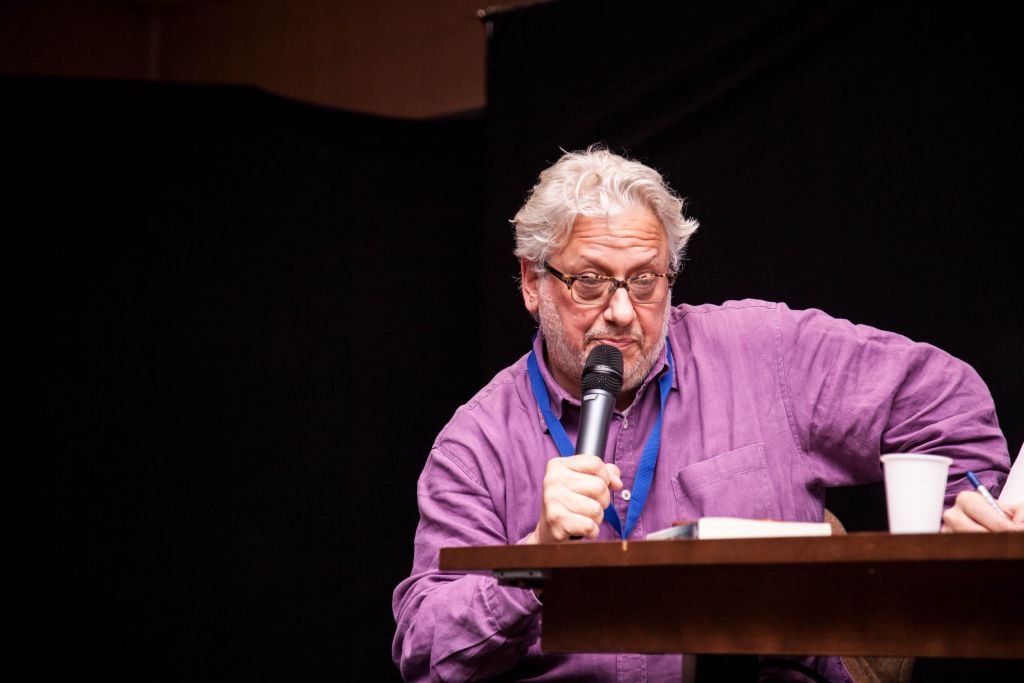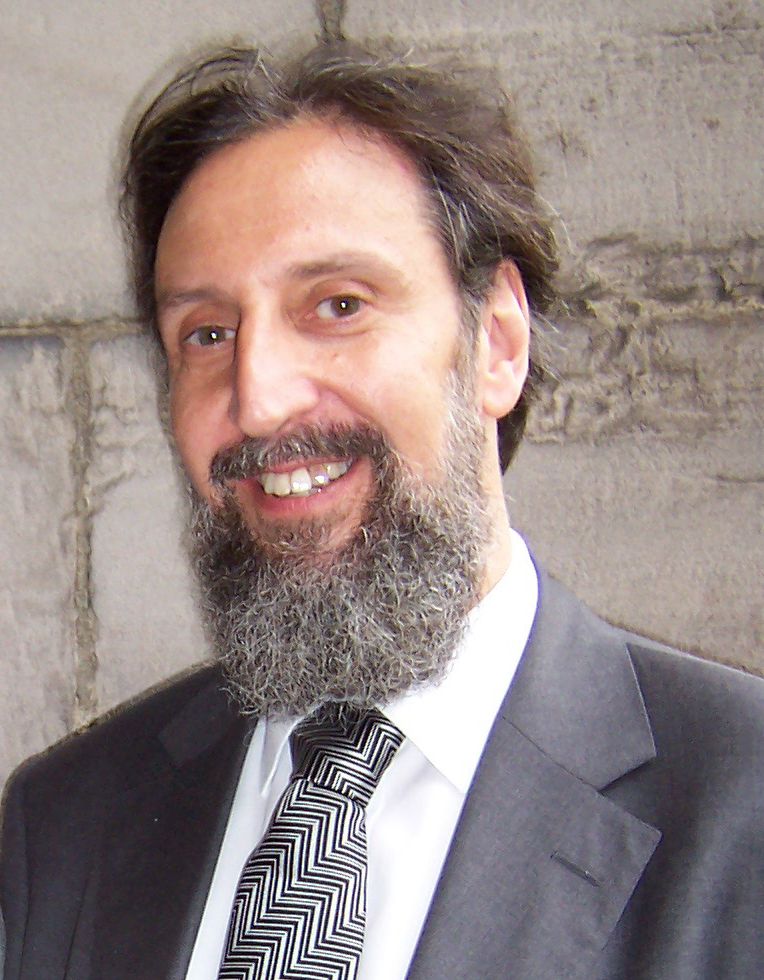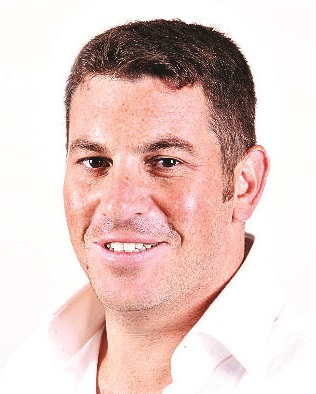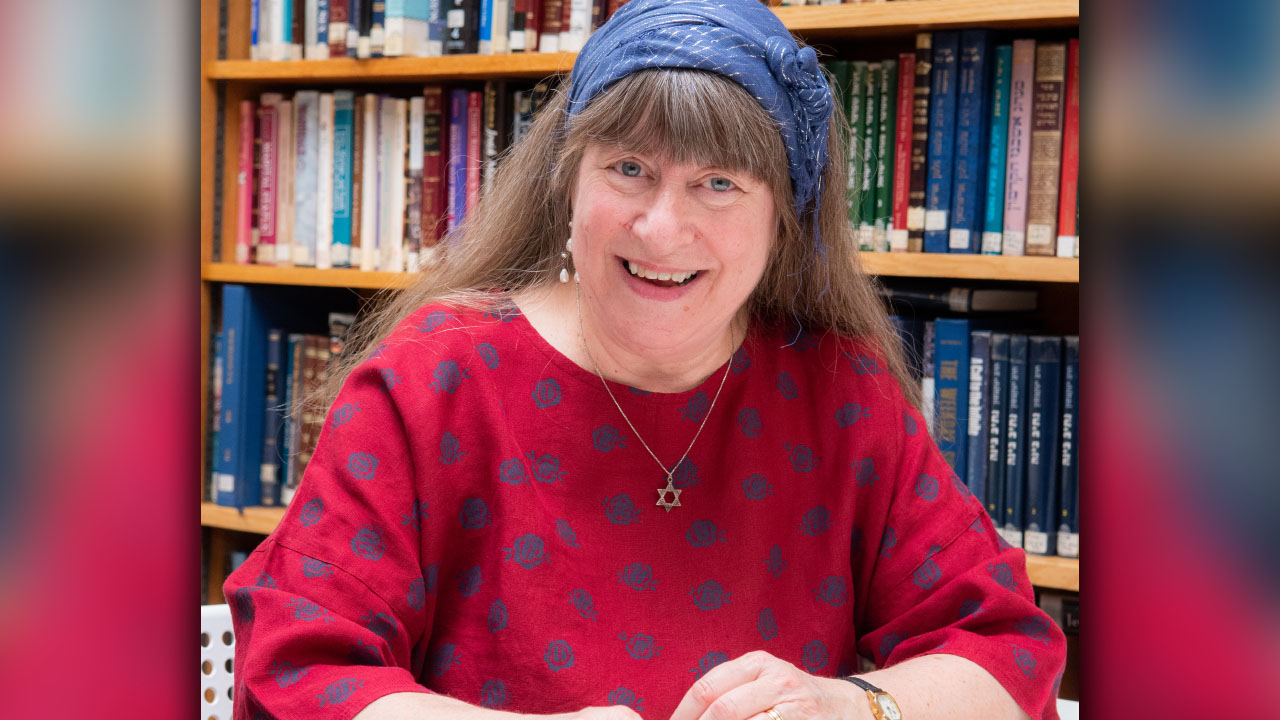Jewish News special report, part two: Divided on division
In the final instalment of our deep dive into polarisation across British Jewry, we ask: are we really more divided than ever?
In our previous issue we published the first part of an in-depth look at the Jewish community’s left-right divide. It certainly got tongues wagging.
Today we bring you part two. We’ve heard about the different factions or caucuses, the splintering of the left beyond Yachad and the organising of the community’s ‘right’ to win key positions on sub-committees at the Board of Deputies.
We’ve considered the effect of Jeremy Corbyn’s Labour leadership on the community’s political centre ground, asked if there even is a centre ground any more, grappled with the idea that the Jewish left-right gap has become a chasm and wondered aloud whether the community is still governable.
Get The Jewish News Daily Edition by email and never miss our top stories Free Sign Up
This week we continue our inspection of the faultlines, asking where next for a community that some suggest is made for the phrase ‘two Jews, three opinions’ and others claim is now more united than ever.
Shifting tectonic plates
Some certainly feel that we are more divided than ever. On Israel, Likud Herut UK chair Zalmi Unsdorfer puts this down to two things : “more attacks on Israel by the woke, but also more pride in Israel for its achievements, most recently on Covid”. He says the right are fighting back. “There’s a swelling defence movement. We’re not going to let our only Jewish home be sullied in this way.
“The more Israel is subject to moral relativism and woke commentary, the more it irritates people who understand and realise that we only have one Israel, and if we don’t support it and underpin it, it’s going to go down.”
Unsdorfer adds that the right “have no truck with those who do the West Bank talk, which they’re incensed by, so yes, the fault-lines are very severe”.
From the other side of the spectrum, Jon Lansman, the Jewish founder of socialist grassroots group Momentum, agrees that the clouds are looming. “The venom and hostility from the extremes are pulling the tectonic plates apart,” he says.
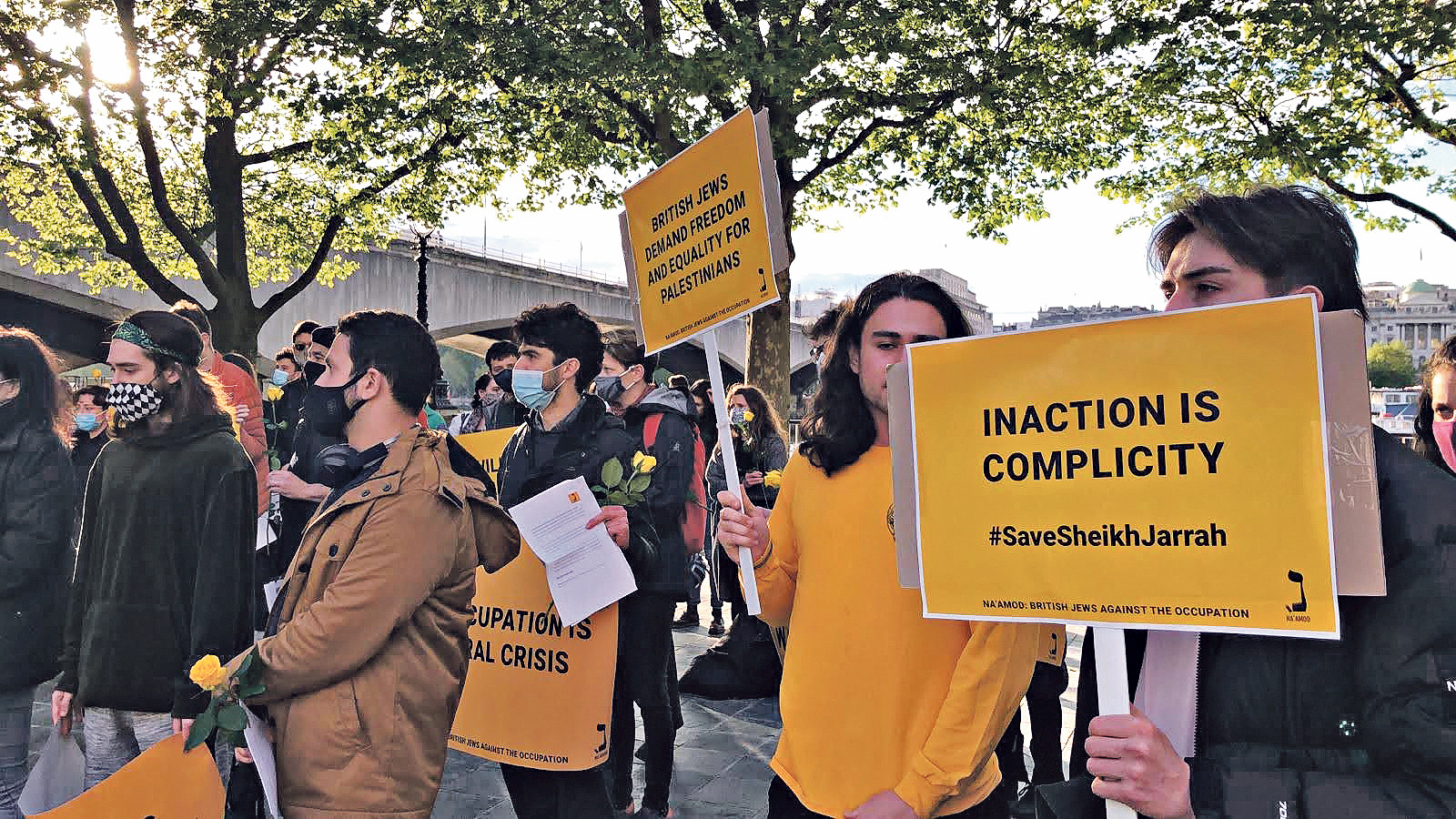
“If you can’t speak to people elsewhere on the spectrum, if you’re always looking over your shoulder when trying to work with others, that level of intolerance pulls people apart. The JCORE vote was indicative of the plates breaking away.”
Former Board president Jonathan Arkush reminds us that left-wing JCORE was not alone in having its membership rejected – the right-wing Zionist Central Council (ZCC) also failed to get the required 66 percent. It shows a polarisation, he says.
“It seems to indicate a fairly strong ‘right’ at the Board, and a fairly strong ‘left’,” says Arkush. “Though neither has enough dominance to get a two-thirds majority.”
This chimes with the experience of Andrew Gilbert, a left-wing deputy. “On Israel, we’re further apart than ever, because Israel is so divided. But the community is generally much more divided on all political issues,” he says. “It’s not just Israel.”
Harmony and collectivism
Others disagree, arguing that we are not as riven as at times we seem. Interestingly, the ‘keep-calm-and-carry-on-agreeing’ camp is led by unlikely ideological bedfellows.
Paul Charney, who until recently chaired the ZF, says that while people “may disagree on Israel, no one disagrees on policies” in the UK. “Antisemitism is the emergency issue here. Everyone agrees on that, left and right.”
The things Jewish leaders deal with, such as education and social care, “are broadly agreed upon by the vast majority”, Charney says. “Even in shuls, the difference between the United Synagogue and Reform is not that great, and nobody even cares. There are no major battles. They’ll hang me for saying it, but everyone really does agree. You want disagreement? Go to Israel. I don’t see any here. It’s homogenised. Arguments are only on the fringes.”
David Davidi-Brown, new head of New Israel Fund UK and until recently at the Union of Jewish Students (UJS), finds himself on the same page. “The community is more united today than at most points in history,” he says. “The big fallouts – Louis Jacobs, the Hugo Gryn funeral – or on Israel – two states, mutual recognition – were much more fraught in the 20th century.
“When Chief Rabbi Mirvis was installed, the progressive leadership was there. Support for two states is now mainstream. Step back and on all the big issues, there’s much more common ground. It’s just that there are some louder fringes.”
Arieh Miller, a former ZF director who succeeded Davidi-Brown as CEO of UJS, says the “boundaries” of the community’s left-right split haven’t changed. “They’re the same as they were 50, 60, 70 years ago. It’s just that the divide has become more accentuated, more prominent. It’s talked about more, in more places.” Perhaps expectedly, Jewish Leadership Council (JLC) chair Jonathan Goldstein stresses the “major elements in our community where there is a degree of collectivism and harmony”, citing religious tolerance, social care, and antisemitism.
On tackling anti-Jewish racism, he says: “There has been a huge amount of agreement about what is acceptable and what is not, and the actions that the central organisations took. There is still a very wide agreement about the way forward.”
Online and intolerant
Miller says the conversation “isn’t that different, but the way people talk about it and the amount of people who see it has changed, because social media didn’t exist 15 years ago”.
Joseph Cohen, of the Israel Advocacy Movement, agrees. “Social media hasn’t created echo chambers, but it’s let people to see views they disagree with,” he says. “So, when a group says Kaddish for Hamas, for instance, it’s now all over their social media and the views are much more obvious.”
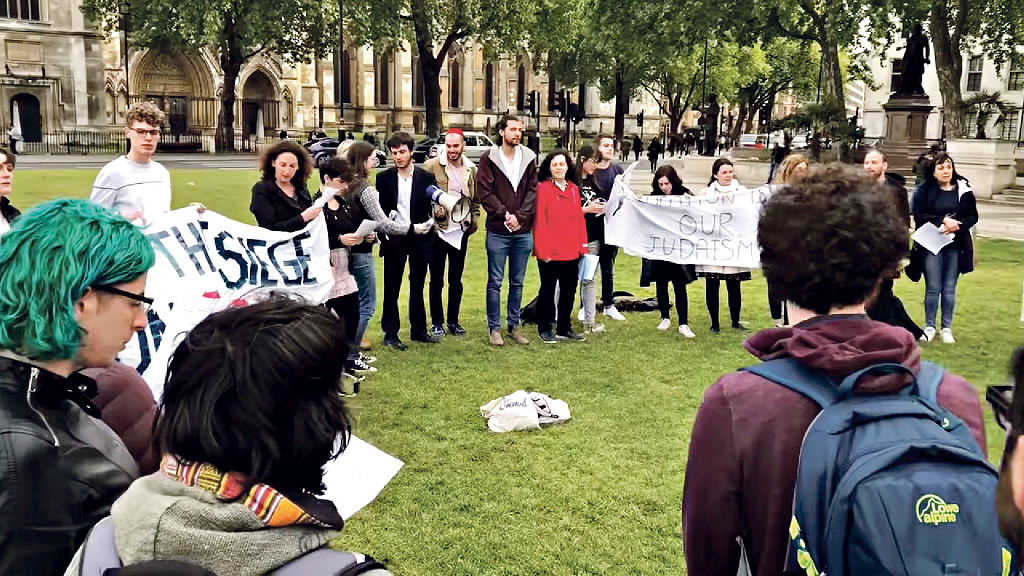
Rabbi Shaw recalls taking part in a panel debate two years ago. “There were two left-wingers, LFI types, and two right-wingers, one was me. I said Israel was an oasis of peace in a desert of savagery and was screamed at and called a racist [by audience members].
“I explained what I meant but it made me realise that I just can’t talk to these people, they’re so angry and mad. Likewise, you had someone from the right in the audience calling them Nazis. You can’t do that! Just talk about the facts.
“It can still be done within certain parts of our community, but it’s getting a lot less tolerant, absolutely. The whole culture now, especially on social media, is ‘as long as your view agrees with my view, you can speak’. It’s very worrying.”
Lansman agrees that we are “increasingly intolerant” and says this “was obvious from the debate on antisemitism in the Labour Party… It became very difficult for people to speak to each other, because they were attacked by the extremes. There’s a sense now in which that’s true of speaking about Israel.”
Like others, Arkush is “worried about loud noises from both left and right, clamouring for longer and louder, each watching the other, each struggling for mastery,” adding: “I don’t like it. Most Jews are neither very left nor very right.
“The ‘Jew in the pew’ would like the louder mouths to be quieter,” he says. “They find Board debates too shrill. Most people are moderate. Shrill shouting by people at either end [of the political spectrum] simply doesn’t make for rationale debate.”
While Arkush thinks the louder online activists are now left-wing, Mike Katz, chair of the Jewish Labour Movement (JLM), says “the voices we hear in the community online sound more right-wing than they used to, particularly on Israel”.
When it comes to discussing national politics in the community, Katz thinks some partisan activists “still use Corbyn as a stick with which to beat Labour, acting as if he were still leader, which seems to be wishful thinking on their part”.
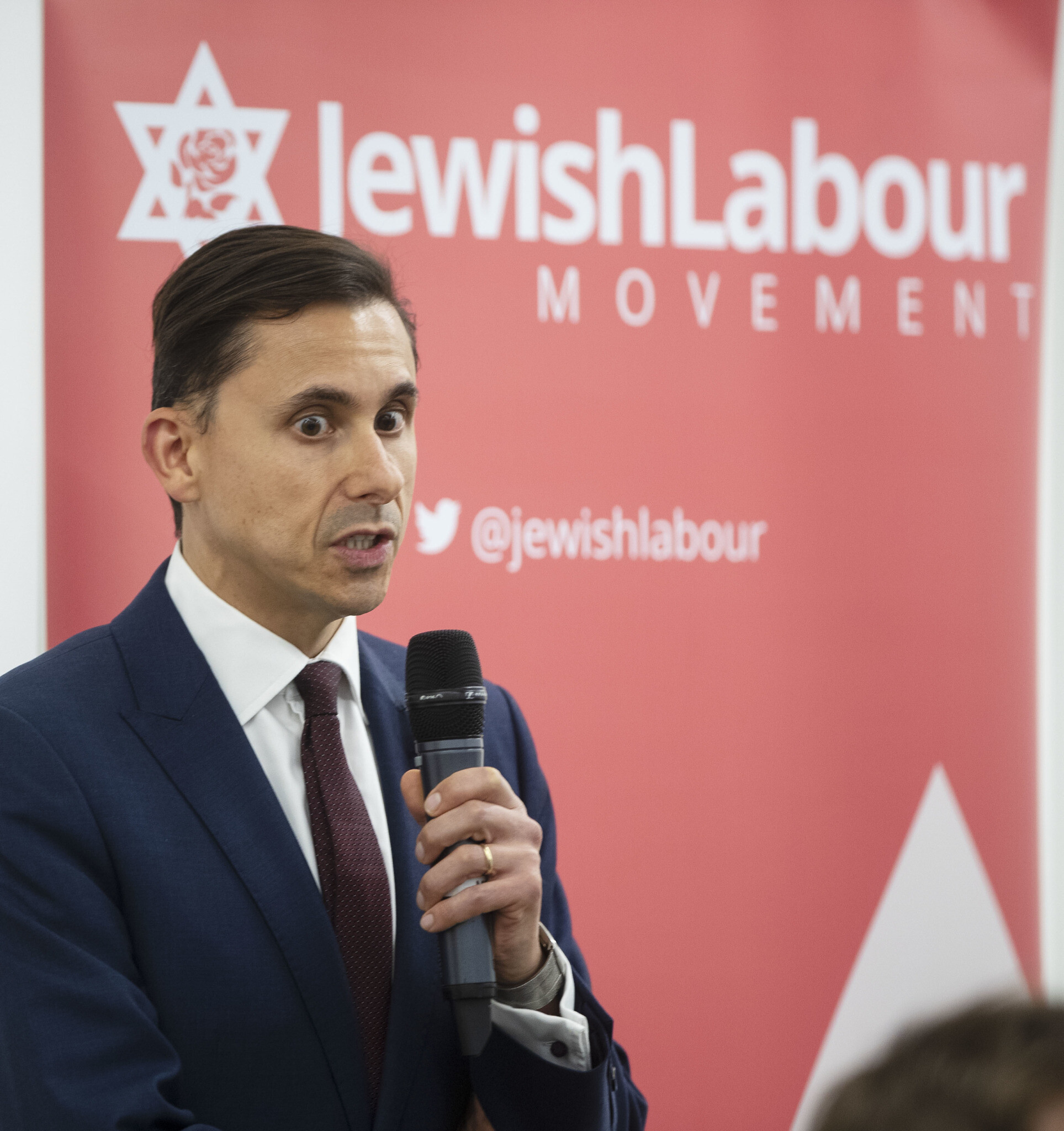
He says: “They’re still fighting their war, despite the terrain having changed. It’s a problem and one of my biggest worries, because it isn’t healthy for our community. If we can’t get back to a non-partisan approach, that has ramifications for the way the community is perceived, let alone the way its members interact.
“We’re not a big community. If we spend more time arguing among ourselves, we’ll lose our outward focus and lose the right to be heard in wider debates, where previously we have been heard and respected.” Amen, says JCORE’s Dr Edie Friedman. “We need to learn how to talk to each other and how to differ. Rather than slag each other off and tell each other to shut up, I think we just need to get back to basics.”
To speak or not to speak
Ephraim Borowski, director of the Scottish Council of Jewish Communities and a candidate for vice-chair of the Board’s defence division, is one of many who caution against “representative” public statements on things like Israel.
“My main worry for the future for any organisation representing the Jewish community is consensus,” he says. “The function of a representative body is to represent. That presupposes a common consensus. On too many matters there are lots of people at each end and not many in the middle. If you have that kind of bimodal distribution, you’ve lost the centre. An umbrella representative organisation has to represent the centre… [but] there isn’t a centre to speak for anymore.”
He says that while Israel is important to 93 percent of British Jews’ identity – “a pretty good consensus” – there is “an enormous difference between that and, say, the West Bank [or Judea and Samaria], where we can’t even agree what to call it”.
Likewise, in just a few years, some youth movements have gone “from ‘socialist Zionist’ to wanting to hang on to every inch of ‘Greater Israel’, he says.
“That’s a hell of a shift, a hell of a gulf. The problem for anyone speaking for ‘the communal view’ is how to bridge that. Otherwise, there isn’t ‘one’ communal view. Perhaps, as Wittgenstein said, ‘Of what we cannot speak we should remain silent.’”
Human rights barrister Adam Wagner is more blunt. “I don’t think the Board should say anything on politics,” he says. “Once you start, silences become statements, and you have to be consistent. Why is a parliament making statements on international politics or controversial topics? These statements usually depend more on the temperament of the president at the time. It’s a hiding to nothing. Stick to things directly relevant to the community.”
Yachad’s Hannah Weisfeld agrees. “It would be much better for Anglo-Jewry – and the Board – if they just said nothing on Israel. When they refused to say anything about annexation it showed where their progressive credentials were.”
We’ve been here before, of course. In 2011, then Board president Vivian Wineman reacted to deputies voting against a resolution anchoring support for a two-state solution. “They felt we might be dictating to the government of Israel,” he said. “That came from quite left-wing people, saying it was not our business.”
Just three years later, the Board’s pronouncements on Israel proved a lightning rod again, says sociologist Keith Kahn-Harris. “The 2014 conflict in Gaza led to the growth of several self-defined grassroots pro-Israel organisations, born out of dissatisfaction over the Board and the JLC’s response.
“It led to a series of new organisations, including Campaign Against Antisemitism, and a more assertive right-wing response [because] they think the Board is not vociferous enough in defending Israel.”
Whose remit is it anyway?
On non-specifically Jewish issues such as climate change, Kahn-Harris says there is “disagreement over how far the community should speak out on things that aren’t narrowly concerned with Jews and Israel”. This very point was raised as a reason not to admit JCORE to Board membership, with a narrower focus having been something that Board presidential candidate Jonathan Neumann pushed for the May election.
“He got quite a few votes, so clearly it resonates to a degree,” says Kahn-Harris. “Supporters aren’t necessarily climate change deniers. They just think the Board should stay a parochial body. Yet in the still-dominant liberal centre, there’s a feeling that Jews should speak out on wider issues, albeit very carefully.”
Carefully is how Arkush trod, doing his best to avoid Israel debates. “It’s so futile, British Jews in north-west London or north Manchester discussing somewhere we don’t live, don’t pay taxes, don’t vote, don’t undergo the daily realities,” he says.
“On occasion I criticised the Israeli government, but I was generally careful not to, because I don’t think it’s appropriate. Our job as British Jews is to turn up the volume on Jewish life and defend Israel. That’s what chimes a chord with most.”
Had Israel pressed ahead with annexation, and had Arkush still been in the hot seat, would the Board have criticised it? “If the majority of the Israeli public were in favour, I don’t think it would be appropriate for the Board to set up some sort of chorus of denunciation,” he says, adding that “annexation is misunderstood”.
Statements or not, it matters not a jot. “It’s irrelevant,” says Charney. “When I was ZF chair, I said ‘I don’t care about your politics, because you can’t be so far left or right that it influences, affects or harms Israel. Israelis will do that.’ For me, the further Jewish leaders stay away from politics, the more representative they are.”
The times they are changin’
Go back 30 years, Charney says, and left-wing Jews “disagreed over settlements but understood the rationale of land for defence, of the lack of a partner for peace, of the need to build houses for people to live and populations to grow”.
Compare that to today, he says. “They see them simply as an evil, a right-wing hoax, and see settlers more like those far-right white nationalists from the US South.”
Likewise, when Rabbi Shaw was in Bnei Akiva, he had friends in RSY. “We differed on Israel, but we all loved Israel.” Students on the left back then “never overstepped the line by being anti-Israel, supporting our enemies, supporting boycotts”.
London Jewish Forum co-chair Andrew Gilbert recalls that there were “much greater battlelines over denomination than over Israel” 30 years ago.
Arkush agrees. “When I grew up, Zionist politics were basically irrelevant,” he says. “You had old left organisations like Poale Zion and old right organisations like Herut, but very few people took any notice of them.”
Another with a long view is Alex Brummer, a former Board president who chairs The Abraham Initiatives UK. He says “the mainstream United Synagogue majority here – of which I’m part – has, if anything, become more moderate on Israel”.
British Jews “are now much more conscious of settlement policy, the suppression of NGOs inside Israel, the Nation State law,” he says. “It’s narrowed the democratic window and alienated the moderates. I’ve seen it in terms of fundraising for charities like mine, people who before would never have wanted to be involved.”
The other fights
One of the very few points about Israel on which most British Jews agree is that it is still, by some distance, the biggest fault-line in the community. But it is not the only fault-line. Rabbi Andrew Shaw, chief executive of Mizrachi UK, says there is increasingly another, one that comes down to insularity in the 21st century.
“It’s between ‘engaged Orthodoxy’ – Orthodox Jews who want to engage with the modern world, whether on secular education, Israel, or women’s issues – and non-engaged Orthodoxy, which is a more ghettoised form,” he explains. The pandemic – and our response to it – perfectly showcased this divide, he says.
The split isn’t between the modern Orthodox and Charedim, he stresses. “Some Charedi Jews are engaged. The Federation is led by Rabbi Zimmerman and he’s very engaged, very firm on Covid guidance to his shuls. Others stayed open.
“The engaged camp would say ‘We’re part of this society, we’re going to follow its rules.’ The non-engaged would say ‘No, we’re our own world, we can decide for ourselves’. It’s a different worldview.”
Another fault-line, according to some, is social justice. Rabbi Moshe Friedman, a senior educator at the Forum for Jewish Leadership, explains this by saying “many of us today have a strong desire to want to help out, to take up a cause”.
Friedman cites issues such as Uyghur genocide, Greta Thunberg, Twitter mobs and universal debt cancellation. “Social justice is not just a Jewish value, it’s a Jewish invention,” he says.
But Davidi-Brown of NIF UK thinks there is “a mainstream interest in wider social justice issues that would typically have been viewed as left-wing”, citing the Chief Rabbi’s Ben Azzei scheme, and support for WJR campaigns and the Uyghurs.
One left-wing deputy says mainstream Jews are “typically pro-immigration but cynical of other progressive issues” and accuses the right of “feeding a culture war”.
Reform Rabbi Laura Janner-Klausner says another fault-line is gender. “You saw that with [Orthodox rabbi] Lindsey [Taylor-Guthartz, who was reinstated by the London School of Jewish Studies last month after a backlash]. It’s about women and religion, what they’re allowed to do. That’s a new fault-line, which is a good thing.”
Meanwhile James Harris, the recent UJS president vying to be vice-chair of the Board’s defence division, says we are “still split on Israel” but that the communal divide is “far more obvious on other issues since the pandemic, as many took to social media to express their views”.
Echoing JCORE’s Friedman, he says: “We have to be willing and open to work with those with whom we fundamentally disagree [but] we have a long way to go on this.”

Thank you for helping to make Jewish News the leading source of news and opinion for the UK Jewish community. Today we're asking for your invaluable help to continue putting our community first in everything we do.
For as little as £5 a month you can help sustain the vital work we do in celebrating and standing up for Jewish life in Britain.
Jewish News holds our community together and keeps us connected. Like a synagogue, it’s where people turn to feel part of something bigger. It also proudly shows the rest of Britain the vibrancy and rich culture of modern Jewish life.
You can make a quick and easy one-off or monthly contribution of £5, £10, £20 or any other sum you’re comfortable with.
100% of your donation will help us continue celebrating our community, in all its dynamic diversity...
Engaging
Being a community platform means so much more than producing a newspaper and website. One of our proudest roles is media partnering with our invaluable charities to amplify the outstanding work they do to help us all.
Celebrating
There’s no shortage of oys in the world but Jewish News takes every opportunity to celebrate the joys too, through projects like Night of Heroes, 40 Under 40 and other compelling countdowns that make the community kvell with pride.
Pioneering
In the first collaboration between media outlets from different faiths, Jewish News worked with British Muslim TV and Church Times to produce a list of young activists leading the way on interfaith understanding.
Campaigning
Royal Mail issued a stamp honouring Holocaust hero Sir Nicholas Winton after a Jewish News campaign attracted more than 100,000 backers. Jewish Newsalso produces special editions of the paper highlighting pressing issues including mental health and Holocaust remembrance.
Easy access
In an age when news is readily accessible, Jewish News provides high-quality content free online and offline, removing any financial barriers to connecting people.
Voice of our community to wider society
The Jewish News team regularly appears on TV, radio and on the pages of the national press to comment on stories about the Jewish community. Easy access to the paper on the streets of London also means Jewish News provides an invaluable window into the community for the country at large.
We hope you agree all this is worth preserving.
- News
- News Features
- Jewish community
- Yachad
- Board of Deputies
- Jeremy Corbyn
- Labour
- Likud-Herut UK
- Zalmi Unsdorfer
- Covid
- west bank
- Jon Lansman
- Momentum
- JCORE
- Jonathan Arkush
- Zionist Central Council (ZCC)
- Andrew Gilbert
- Paul Charney
- Zionist Federation
- Antisemitism
- United Synagogue
- reform
- David Davidi-Brown
- New Israel Fund UK
- Union of Jewish Students (UJS)
- Louis Jacobs
- Hugo Gryn
- Chief Rabbi Mirvis
- Arieh Miller
- Jewish Leadership Council (JLC)
- Jonathan Goldstein
- Joseph Cohen
- Israel Advocacy Movement
- Hamas
- Rabbi Andrew Shaw
- Mike Katz
- Jewish Labour Movement (JLM)
- Dr Edie Friedman
- Ephraim Borowski
- Scottish Council of Jewish Communities
- Judea and Samaria
- Adam Wagner
- Hannah Weisfeld
- Vivian Wineman
- Campaign Against Antisemitism
- Keith Kahn-Harris
- Jonathan Neumann
- bnei akiva
- RSY
- London Jewish Forum
- Poale Zion
- Alex Brummer
- The Abraham Initiatives UK
- Mizrachi UK
- The Federation
- Rabbi Zimmerman
- Rabbi Moshe Friedman
- Forum for Jewish Leadership
- Uyghur genocide
- Greta Thunberg
- Ben Azzei
- World Jewish Relief campaigns
- Reform Rabbi Laura Janner-Klausner
- Lindsey Taylor-Guthartz
- London School of Jewish Studies
- James Harris
- Israel News
-
By Laurent Vaughan - Senior Associate (Bishop & Sewell Solicitors)
-
By Laurent Vaughan - Senior Associate (Bishop & Sewell Solicitors)
-
By Laurent Vaughan - Senior Associate (Bishop & Sewell Solicitors)
-
By Laurent Vaughan - Senior Associate (Bishop & Sewell Solicitors)


